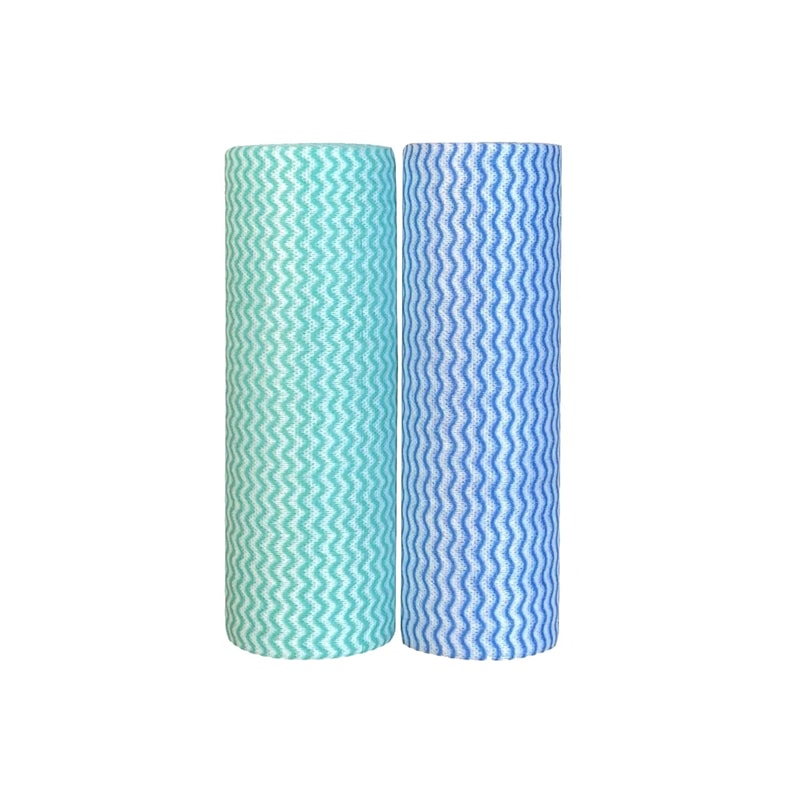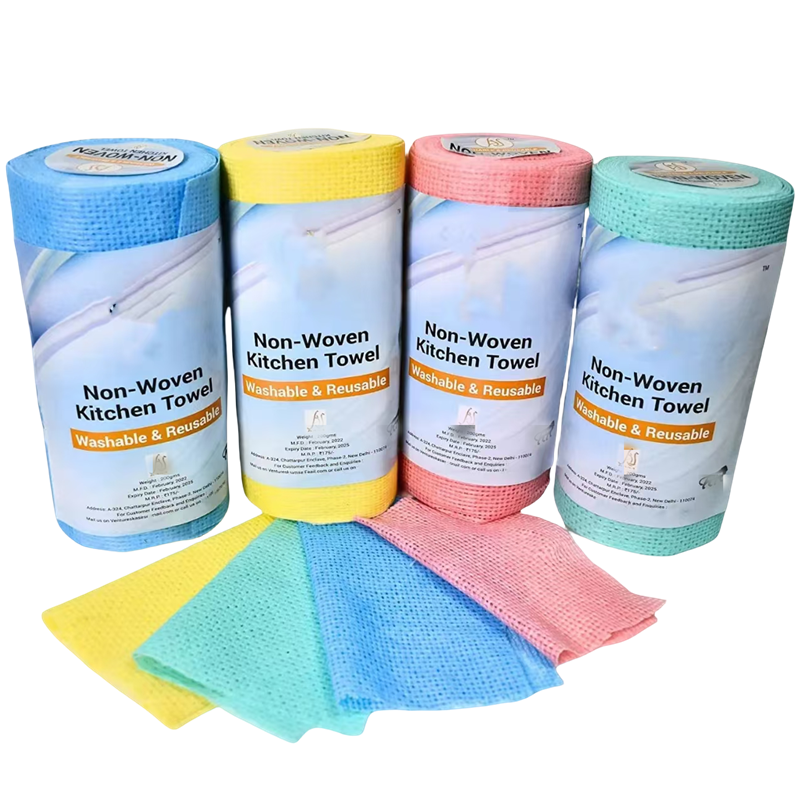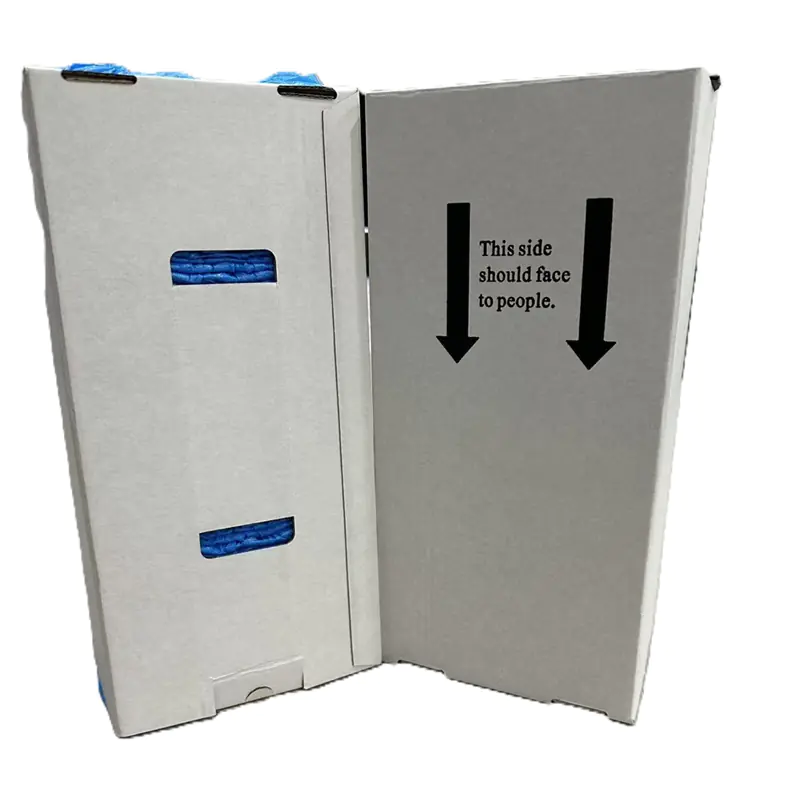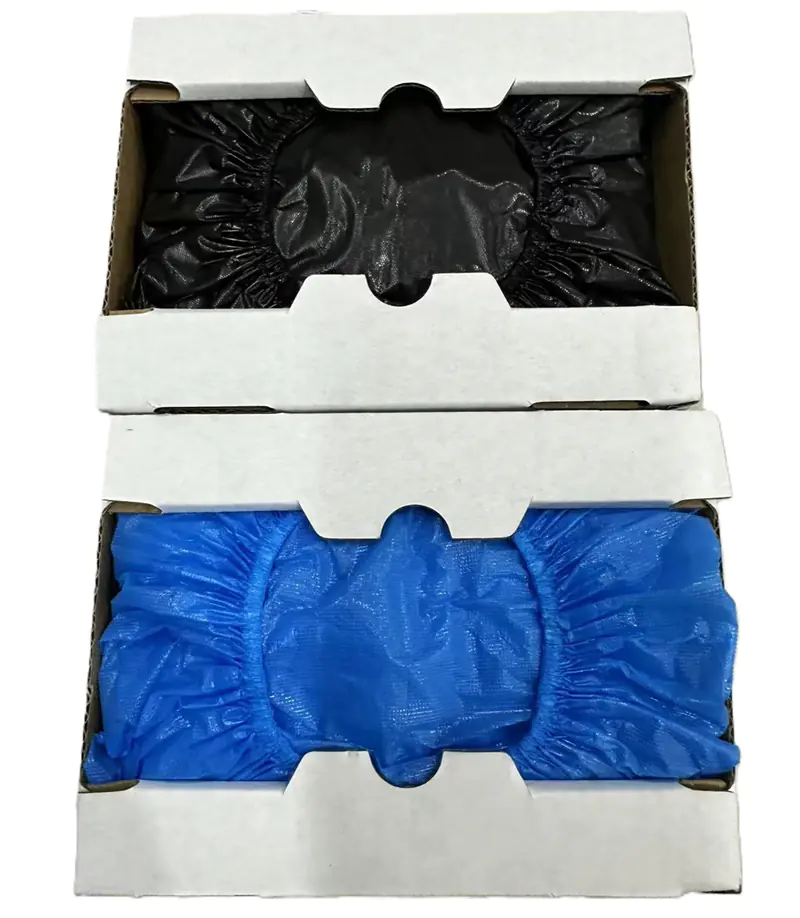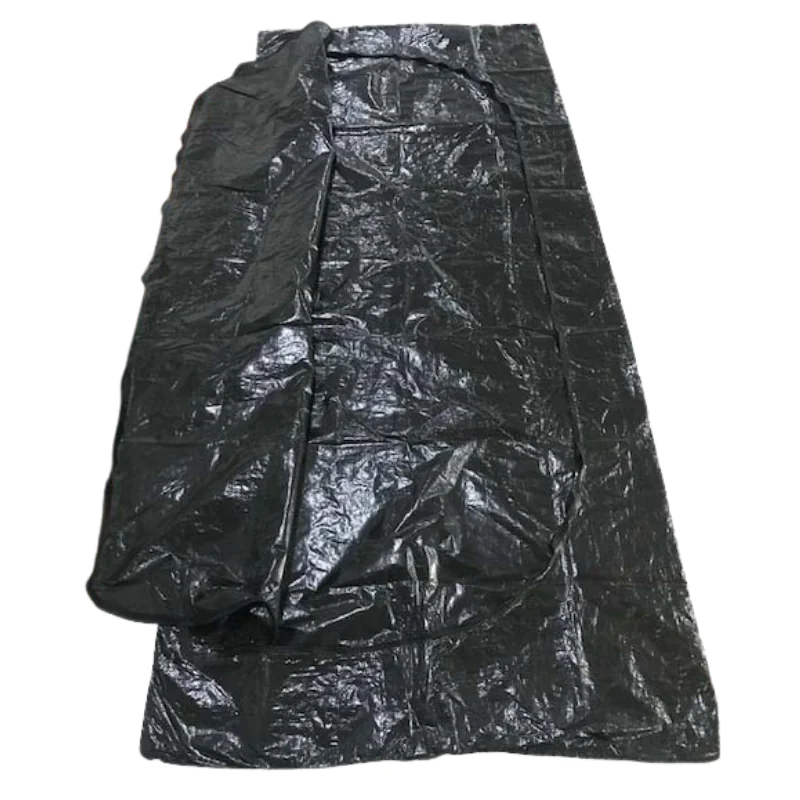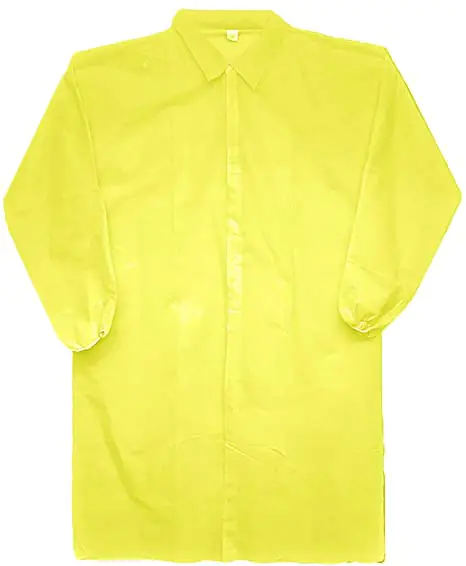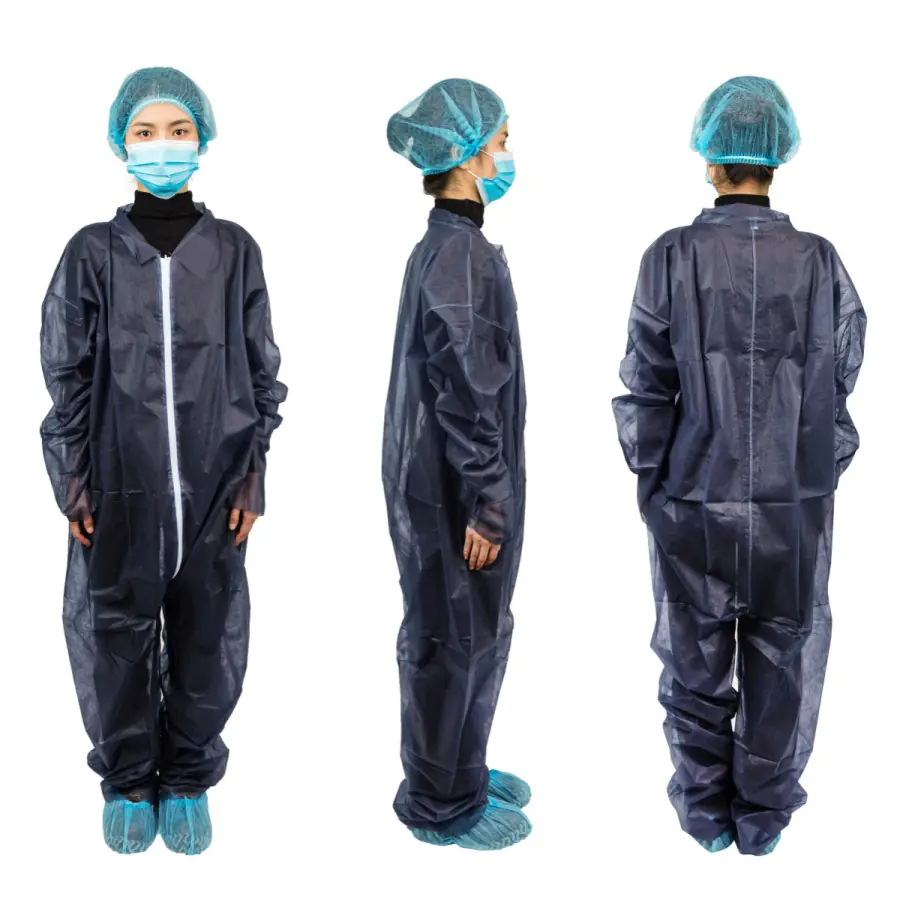Kitchen messes happen every day. Spills, grease, and sticky spots need cleaning. Disposable dish wipes can make cleanup fast そして 簡単. Did you know that almost half of homes in the U.S. use disposable wipes in the kitchen each week? That’s a lot of wipes!
These wipes are handy. You use them once and throw them away. This helps keep things hygienic, which means clean and germ-free. There are special wipes for tough jobs like greasy pans or gentle ones for surfaces that scratch easily. The market for these wipes is big and growing. It’s expected to be worth over $16 billion soon. But with so many choices, how do you pick the right one? This guide will help you understand 使い捨て食器拭き so you can find the perfect match for every mess.
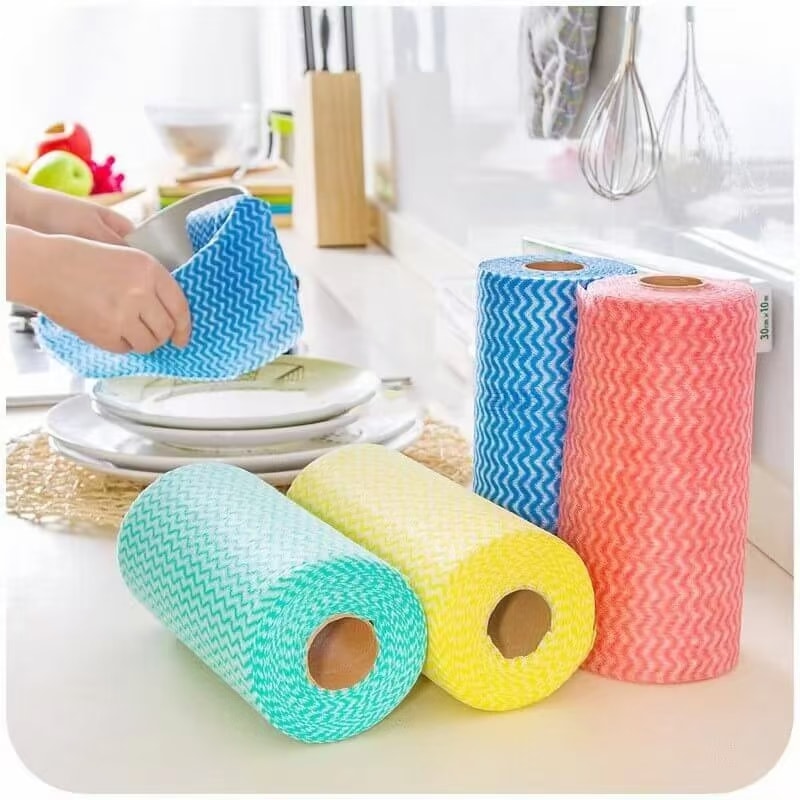
Types of Disposable Dish Wipes
Not all wipes are the same. Different wipes do different jobs. Let’s look at the main types:
- Antibacterial Wipes: These wipes kill germs. They often have ingredients like benzalkonium chloride. Tests show they can kill 99.9% of germs like E. coli very quickly. Look for wipes approved by the EPA Safer Choice program if you want ones tested for safety and germ-killing power.
- Grease-Cutting Wipes: Got greasy pots and pans? These wipes are made for that! They have special cleaners (called surfactants) that break down grease. The wipe material is usually strong, maybe a mix with polyester, so it doesn’t fall apart while scrubbing. These are often heavy-duty kitchen wipes.
- Biodegradable/Compostable Wipes: Want to be kind to the Earth? Look for biodegradable dish wipes. This means they break down naturally over time. Some are even BPI-certified compostables. This means they can turn into soil in special composting places, often in about 3 months. These wipes are usually made from plants, like bamboo or wood pulp. Check for labels like the Nordic Swan Ecolabel too.
- Specialty Wipes: Some wipes are made for specific tasks.
- Non-abrasive wipes for nonstick pans: These are soft, so they won’t scratch your delicate pans.
- Heat-resistant wipes: Good for cleaning warm stovetops.
- Food-safe wipes: Safe to use on surfaces that touch food.
You can often find these wipes sold conveniently, like non-woven disposable cleaning wipes on a roll, making them easy to grab when you need one.
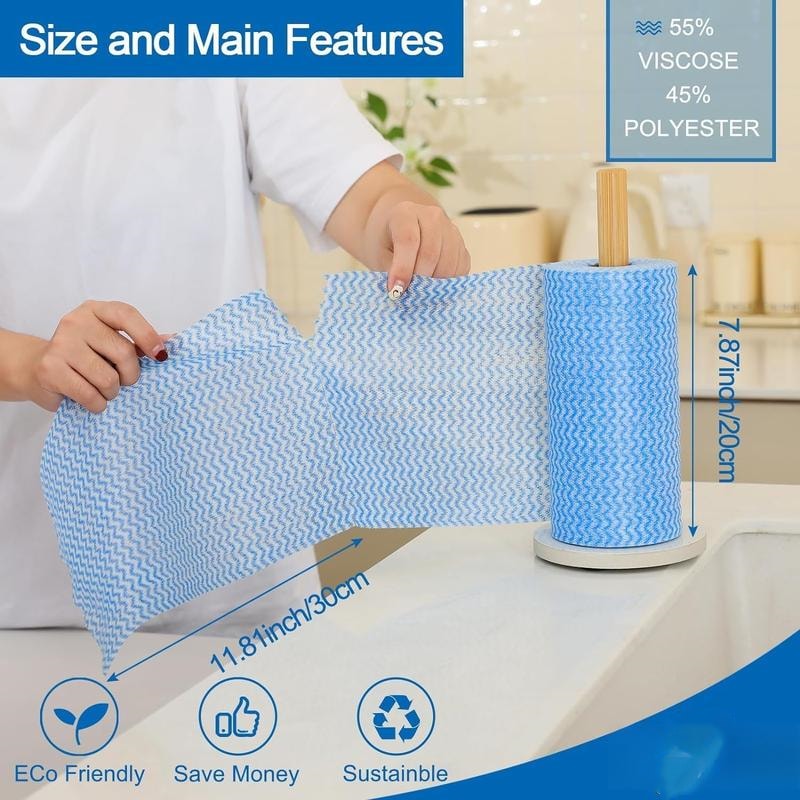
主な特徴
When you shop for disposable dish wipes, think about these things:
Cost Per Wipe: How much does each wipe cost? Buying in big packages (bulk) is often cheaper. Compare the price per wipe between brands. Eco-friendly wipes might cost a little more. You have to decide what is important for your budget. Reusable cloths, like microfiber, cost less per use over time, maybe only 3 cents compared to 15 cents for a disposable wipe.
Material Safety: Is the wipe safe to use around food? Look for food-safe disposable cloths. Check if they meet rules like the FDA’s food contact standards. Some people worry about chemicals called PFAS; look for wipes that say they are PFAS-free.
How Much Liquid It Holds (Absorption): Some messes are big and wet! You need a wipe that can soak up liquid well. Wipes made from plant fibers like cellulose often hold more water than ones made from plastic like polypropylene.
Eco-Impact (Good for Earth?): How does the wipe affect our planet? Regular plastic wipes can take a very long time to break down in landfills. Biodegradable dish wipes または BPI-certified compostables break down much faster. But remember, regular wipes also shed tiny plastic bits called microplastics when used or thrown away [^6]. Plant-based wipes avoid this problem. Many people care about this: almost 7 out of 10 shoppers want biodegradable wipes.
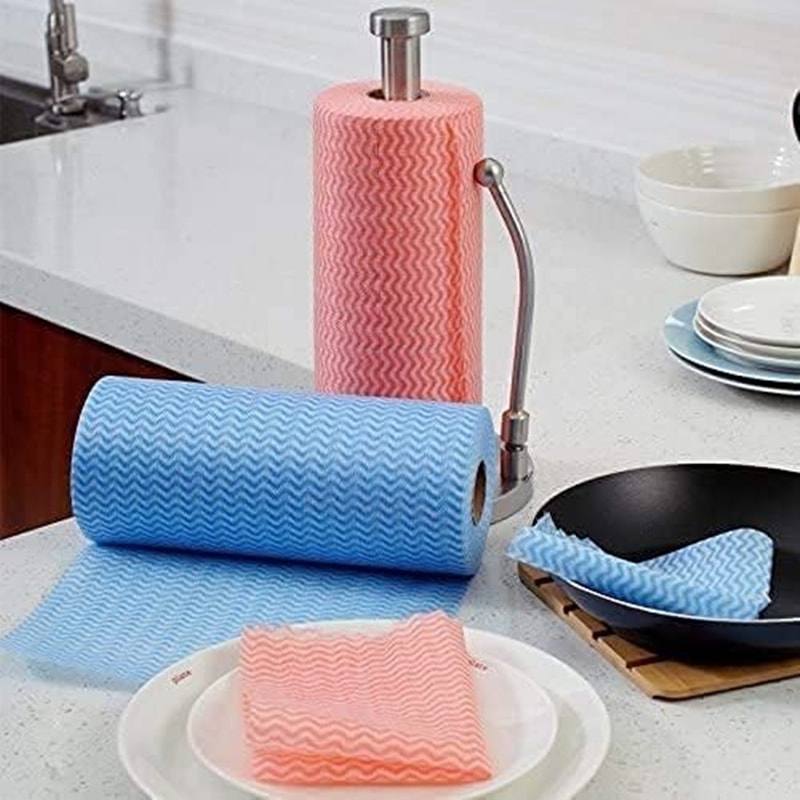
Thinking About the Earth
Using disposable things can create waste. It’s important to think about the planet when choosing wipes.
- Myth: “Flushable” is Okay: Many wipes say “flushable” on the package. Do not flush them! These wipes often don’t break down in pipes. They cause huge blockages in city sewers. One study found they caused 3 out of every 4 sewer clogs. Always throw wipes in the trash can, unless they are certified compostable and you have access to composting.
- Understanding Labels: Look for trusted eco-labels.
- BPI Certified: Means it’s truly compostable in a special facility.
- Nordic Swan Ecolabel: A European label showing good environmental standards.
- USDA BioPreferred: Shows the product is made from plant-based materials.
- Microplastic Problems: Wipes made from plastic materials like polyester or polypropylene release tiny plastic pieces called microplastics. These get into our water and soil, which is bad for nature. Choosing wipes made from plants (like cotton, bamboo, or wood pulp) helps avoid this.
Some cities and businesses are trying to reduce waste. For example, restaurants in Seattle cut their waste by 40% when they switched to certified compostable wipes.
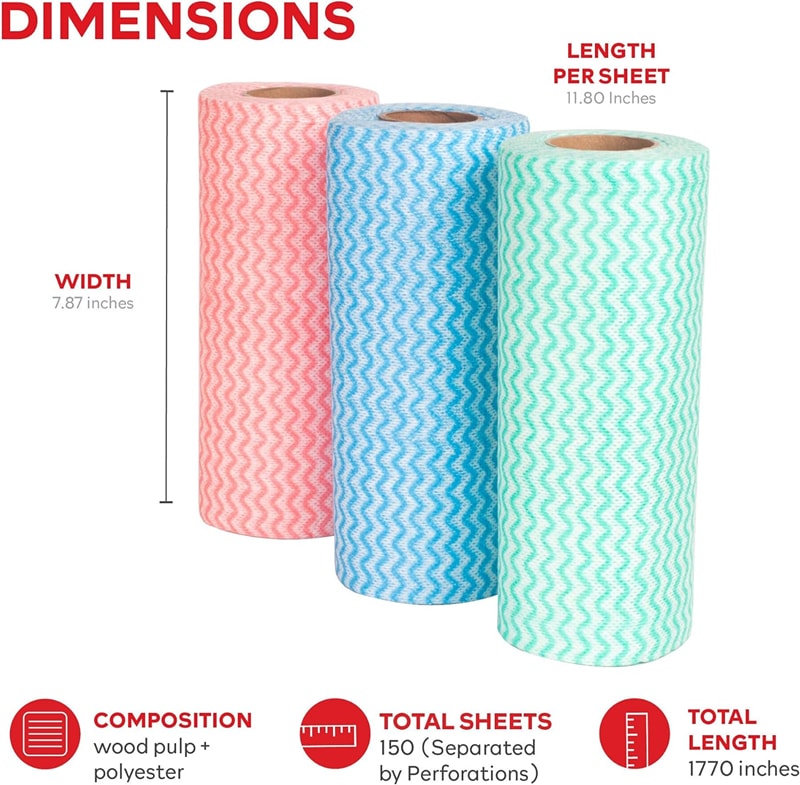
Top Brands Compared
There are many brands of disposable dish wipes. Here are a few types you might see:
| Brand Type | Examples | よく知られている |
| Budget-Friendly | Amazon Basics, Kirkland Signature | Good value, often sold in large packs. |
| Eco-Leaders | Seventh Generation, ECOS | Focus on plant-based, biodegradable dish wipes, eco-certifications. |
| Heavy-Duty | Scotch-Brite, Lysol Kitchen Pro | Strong for tough grease and grime, often heavy-duty kitchen wipes. |
Note: SC Johnson is another major company that makes many popular cleaning products.
Think about what you need most: saving money, being eco-friendly, or having maximum cleaning power. This table can help you start comparing.
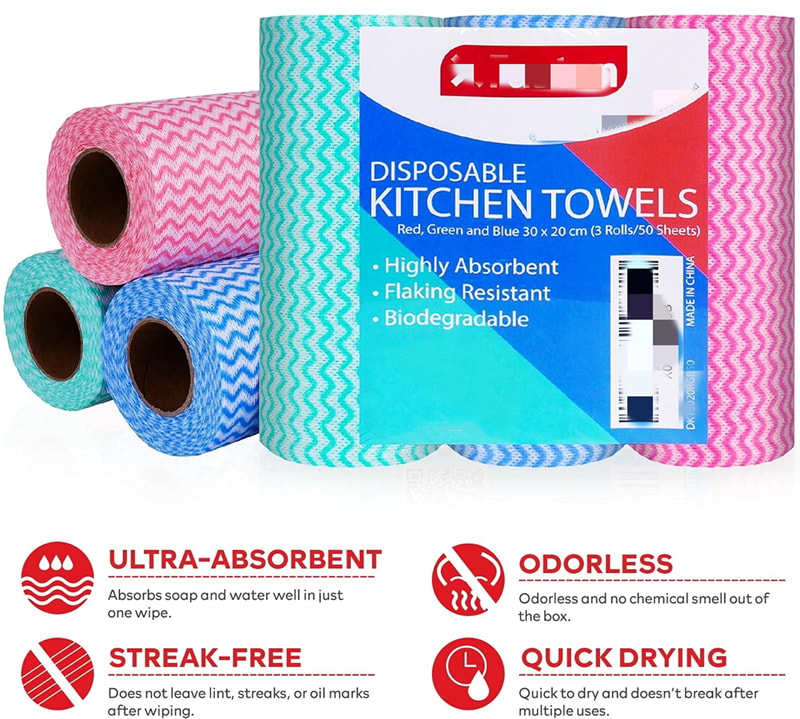
Disposable vs. Reusable: When to Choose
So, should you use disposable wipes or reusable cloths (like sponges or microfiber towels)?
Choose Disposable Wipes When:
- Hygiene is Top Priority: Cleaning up after raw meat or chicken? A disposable wipe used once helps prevent spreading germs.
- Convenience is Key: Traveling, camping, or in an RV? Disposables are easy to pack and use without needing to wash them.
- Very Greasy/Messy Jobs: Sometimes a mess is so bad (like burnt-on food) that you’d rather just wipe and toss than try to clean a reusable cloth.
Choose Reusable Cloths When:
- You Want to Save Money Long-Term: Reusable cloths cost more at first, but you can use them hundreds of times. This saves money compared to buying disposable wipes often.
- Reducing Waste is Important: Reusables create much less trash going to the landfill.
- Everyday Small Spills: For quick counter wipe-downs or small spills, a reusable cloth works great.
Many kitchens use a mix! Maybe reusable cloths for daily tasks and disposable dish wipes and cleaning cloths for your kitchen for the really dirty or germy jobs.
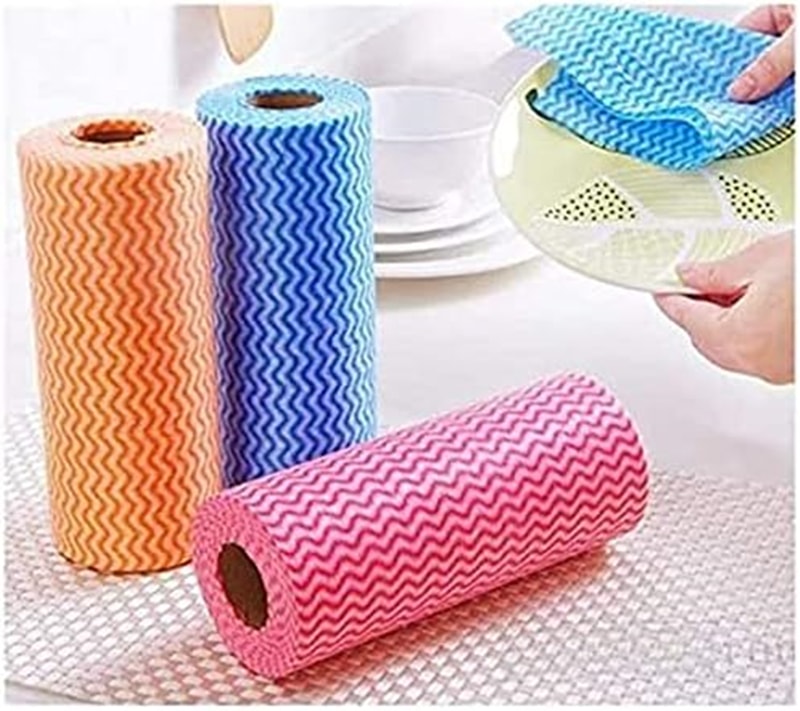
Expert Tips for Using Wipes
Get the most out of your disposable dish wipes with these tips:
保護: For heavy cleaning jobs, consider wearing protective gear like disposable plastic PE aprons to keep your clothes clean.
Keep Them Moist: If your wipes come wet, seal the package tightly after each use. An airtight container helps too. Dry wipes don’t clean well!
Match Wipe to Surface: Use gentle, non-abrasive wipes for nonstick pans and glass. Use tougher, heavy-duty kitchen wipes for scrubbing sinks or greasy stovetops.
Don’t Just Toss Them (Maybe!): After cleaning a light mess, could the wipe do one more small job? Maybe wipe down the trash can lid or use it as a gripper to open a tight jar before throwing it away. (Don’t reuse if it cleaned raw meat or something very dirty!)
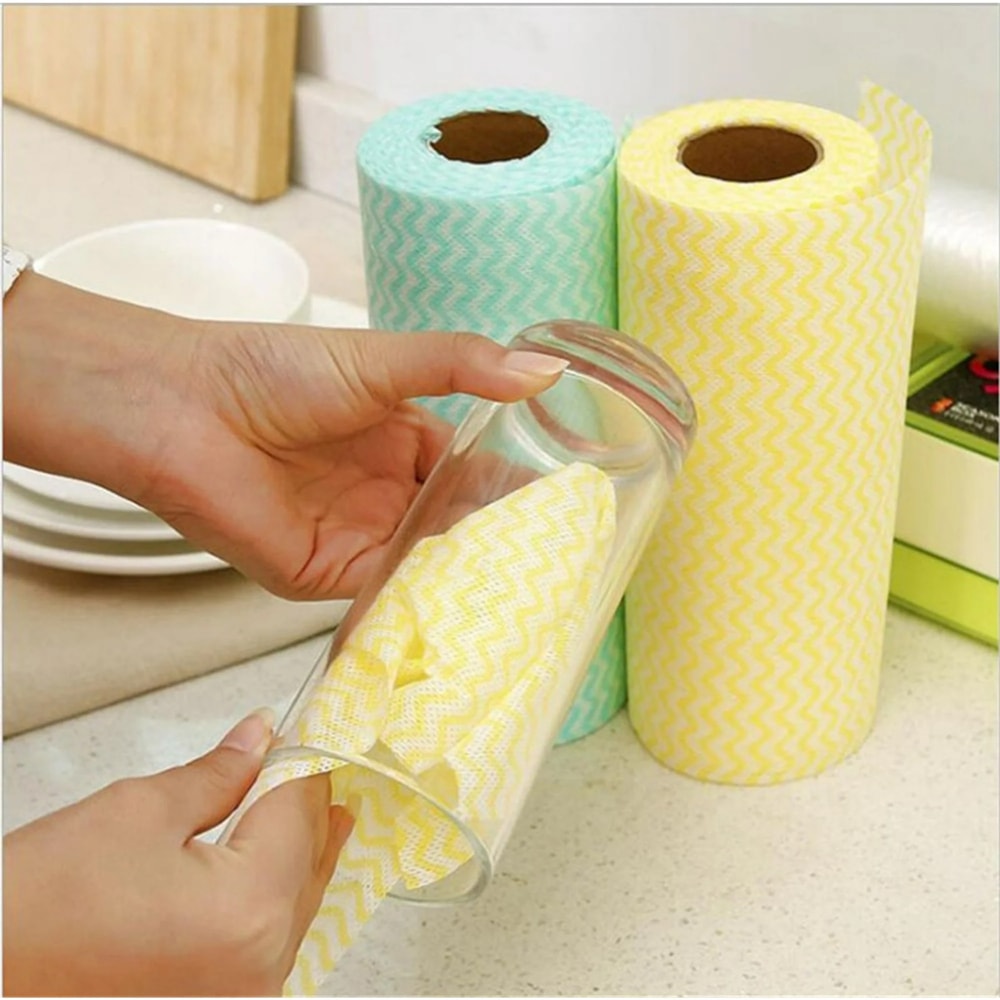
Conclusion: Find Your Perfect Wipe
Disposable dish wipes offer convenience そして hygiene for kitchen cleaning. From killing germs with antibacterial wipes to tackling grease with heavy-duty kitchen wipes, there’s a wipe for almost every task. Remember to look for food-safe disposable cloths when cleaning food prep areas.
If you care about the planet, choose biodegradable dish wipes または BPI-certified compostables and always throw wipes in the trash, never flush them. Think about the material, how well it absorbs, and the cost. Compare brands like Seventh Generation for eco-options or Scotch-Brite for power. Take a moment to think about the messes you clean most often. Do you need something gentle or strong? Is being eco-friendly your top goal? Answering these questions will help you choose the best disposable dish wipe for your kitchen needs. Clean smarter, not harder!
